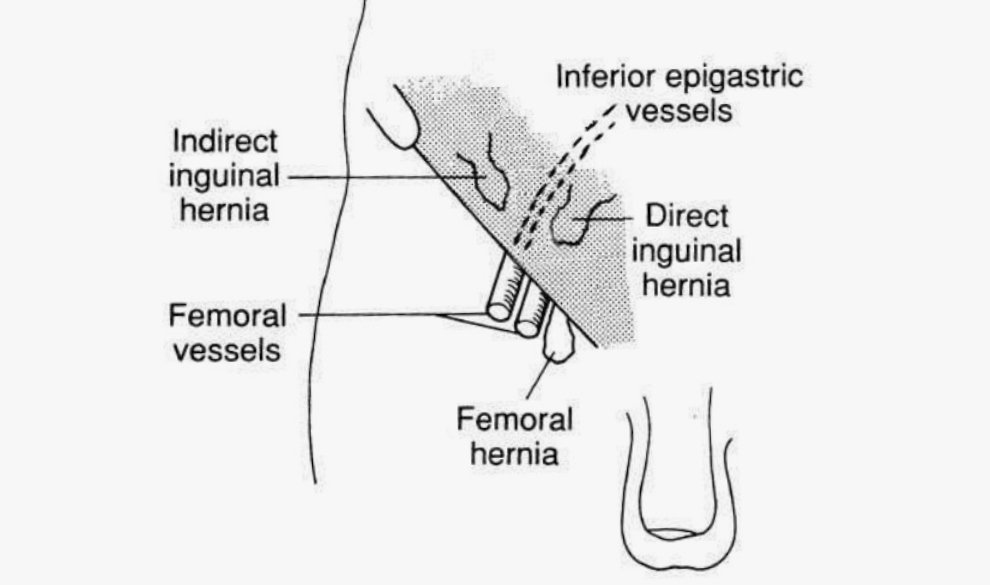What is an inguinal hernia?
An inguinal (pronounced "ingwinal") hernia is the most common type of hernia.
It can appear as a swelling or lump in your groin, or as an enlarged scrotum (the pouch containing the testicles). The swelling may be painful.
The lump often appears when you're lifting something and disappears when you lie down.

What causes an inguinal hernia?
An inguinal hernia occurs when fatty tissue or a part of your bowel pokes through into your groin at the top of your inner thigh.
This is the most common type of hernia and it mainly affects men. It’s often associated with ageing and repeated strain on the tummy.
The exact cause is not known but it is believed that a weakness in the abdominal wall as a result of aging or muscle strain causes the fatty tissue, or a part of the intestine to bulge into the groin.
What investigations are necessary?
We check for inguinal hernia via ultrasound and MRI herniagram.
How is an inguinal hernia treated?
Hernia’s can be treated based on the size of the bulging and severity. Doctors may suggest lifestyle changes, medication or surgery. If your hernia is small and isn’t bothering you, your doctor may recommend watchful waiting. This is where you closely watch your condition but don’t have treatment unless symptoms appear or change.
Wearing a supportive truss (padded belt which keeps hernia bulge in) may help relieve symptoms, but you should check with your doctor first. This is because it’s important that the truss fits properly, and is being used appropriately.
You may need surgery if your hernia is causing discomfort or is growing larger. There are two types of hernia repair surgeries: open and laparoscopic (key-hole).
Open hernia repair
In open hernia repair, the protruding tissues are pushed back through an incision in the groin, and a synthetic mesh is stitched around the weak spot.
Laparoscopic hernia repair
The procedure is similar to an open hernia repair however the technique is via multiple smaller incisions (rather than one large incision).
How long does inguinal hernia repair take?
Surgical time is 45 minutes on average. However, anaesthetic time and waking up from the anaesthetic will make this seem longer. You’ll usually be able to go home on the same day. Some people stay in hospital overnight if they have other medical problems or live on their own.
How long does it take to recover?
You should be able to go home on the day of, or day after, your operation. You'll need to ask someone to take you home and you should follow any instructions you're given at hospital.
After the operation, your groin will feel sore and uncomfortable. You'll be given painkillers to help relieve this discomfort.
We advise no heavy lifting or vigorous exercise for 6 weeks (this allows the tissue inside your body to heal). However most people find they are able to do gentle activities at 2 weeks.
Contact us
Should you wish to consult Mr Lingam about your hernia, please send an email to mklingam.sec@gmail.com or call:
Derby Nuffield on 01332 540100
Derby Private Suite on 01332 786128
Mr Lingam consults at the Derby Nuffield on Tuesday AM, Wednesday and Friday PM and at Derby Private Suite on a Thursday PM.
